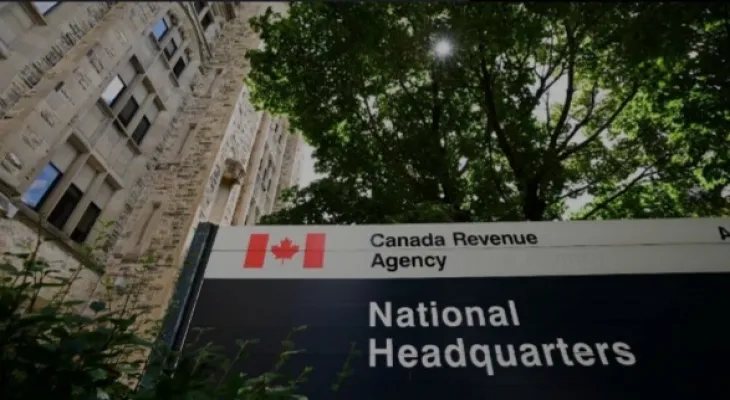Search here
Newspaper
Search here

Arab Canada News
News

Published: August 26, 2023
The confrontation with the Canada Revenue Agency (CRA) can be stressful in the best of circumstances, but the real test of a Canadian's patience may come while waiting to speak with an agent on the phone.
The agency told CTVNews.ca that as of the end of July, CRA's call centers met their goal of reaching a caller within 15 minutes or less only 31% of the time. This is compared to a service standard goal of 65% of calls.
In fact, the average wait time to reach an agent by phone so far this year is 24 minutes, although Canadians routinely complain of waiting over an hour to resolve their tax and benefit issues over the phone.
This is a problem closely monitored by the Taxpayers' Ombudsman, François Boileau, as his office is where Canadian taxpayers send their complaints regarding CRA service.
Boileau told CTVNews.ca in a phone interview on Thursday: "It's a persistent issue every year." "When someone calls and has to wait two, three, or four hours and then gets disconnected — which happens frequently — or is told that the waitlists are full, that causes frustration. This is not acceptable."
In fact, this issue has been ongoing for at least seven years. A federal review conducted for the year between March 2016 and March 2017 found that call center agents answered the phone only about one-third of the time.
The federal government is also aware of the problem and allocated $400 million in the Fall Economic Statement 2022 for the fiscal years 2022-2023 and 2023-2024, to "support the service standard of responding to 65% of calls within 15 minutes or less when the caller chooses to speak with an agent."
When asked why the agency has not met its service standard targets, Jillian Brank, the assistant commissioner responsible for CRA's call centers, said the agency's phone lines have been under stress recently, partly due to the rollout of new benefits.
For example, the second rollout period for the new Canada Dental Benefit program began on July 1, the day after the first period ended.
Brank told CTVNews.ca in a phone interview on Thursday: "We've seen an increasing number of calls regarding the benefits we've provided to support Canadians, which has created some pressure on the system." "In fact, call volumes have increased by more than 30 percent compared to the same period last year."
In addition to the increase in call volume, Brank said calls are now lasting longer than before, with agents spending "almost double" the length of time on each call compared to before 2020. She attributed this to a rise in complex calls related to pandemic benefits, as well as the increasingly time-consuming caller identity verification process.
For his part, Mark Brière, the national president of the Union of Taxation Employees (UTE), believes that issues with CRA's call center are linked to staffing shortages, particularly after the agency chose to end or not renew contracts for 1,800 permanent employees last May and June.
Brière stated in a statement emailed to CTVNews.ca: "I’m not at all surprised by this news." "In fact, our members working in the agency's call centers have been telling us for weeks that they are overwhelmed and on the verge of burnout because they are being asked to work long overtime."
Brière also added that the agency recently brought back 160 employees whose contracts ended in the spring, but the staffing levels in the call center still fail to meet current call volumes.
Boileau did not comment on the staffing levels at CRA's call centers, but he said he made several recommendations regarding customer service in his 2020-2021 annual report.
One of those recommendations was for the agency to offer a callback feature through the website. CRA currently provides a callback feature that is activated only when call volumes reach a certain threshold, and to set up a callback, taxpayers must first call CRA. Boileau said that his office is set to receive the agency’s plan regarding that recommendation in the coming weeks.
Comments